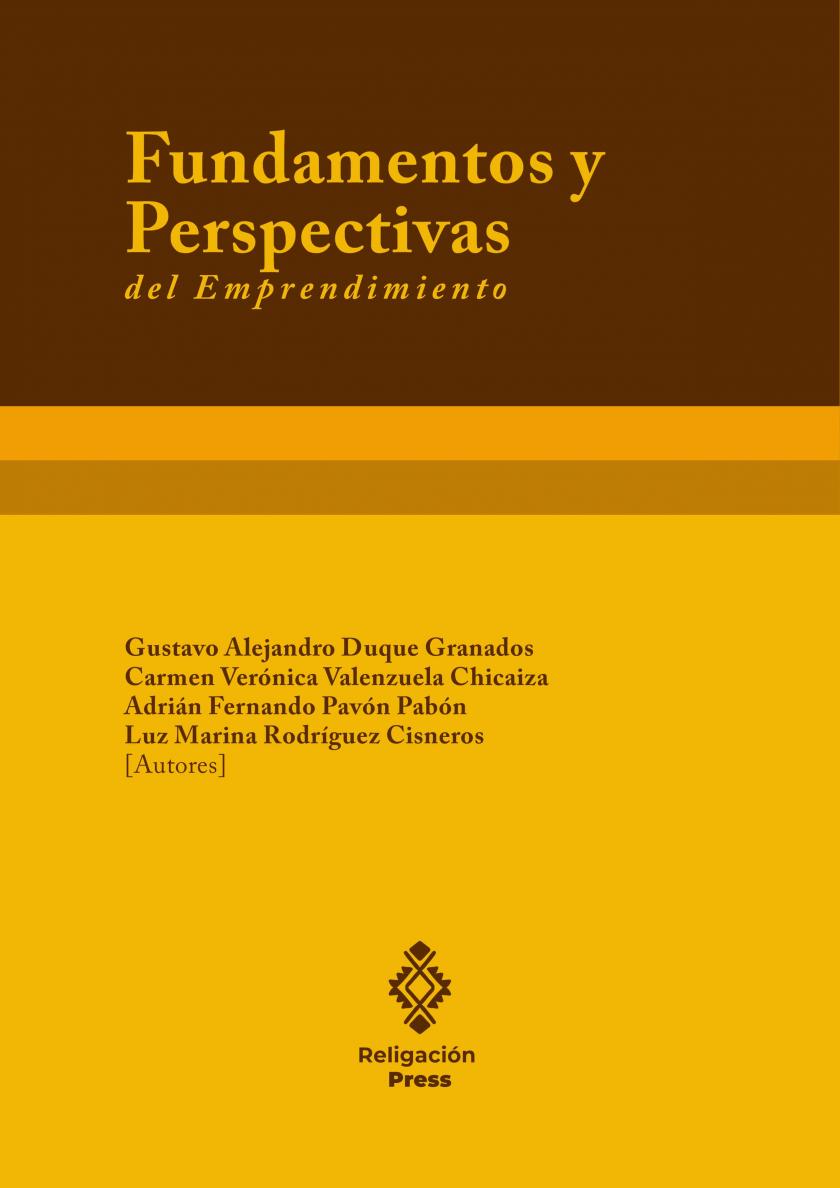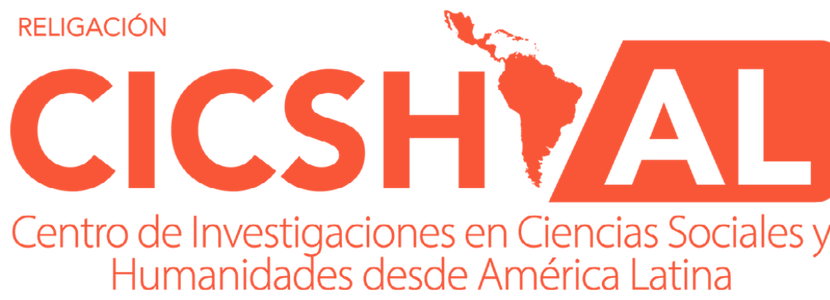Fundamentals and Perspectives of Entrepreneurship
Keywords:
Entrepreneurship; philosophy; creativity; innovation; motivation.Synopsis
The book, aimed at students and anyone interested in entrepreneurship, presents entrepreneurship as a key driver of economic and social development. Structured into four chapters, it offers a comprehensive view of the entrepreneurial process. The first chapter delves into the philosophy of the entrepreneur, emphasizing the importance of initiative and resilience. The second chapter is dedicated to creativity and innovation, fundamental pillars for the development of business ideas. The third chapter examines motivation through various theories as an internal force that drives entrepreneurship, while the fourth chapter focuses on identifying opportunities and building effective business models. With a balanced approach between theory and practice, the book fosters active and collaborative learning, preparing readers to face the challenges of entrepreneurship and create sustainable and impactful businesses.
Downloads
References
Acs, Z. J., Estrin, S., Mickiewicz, T., & Szerb, L. (2018). Entrepreneurship, institutional economics, and economic growth: An ecosystem perspective. Small Business Economics, 51(2), 501-514. https://link.springer.com/article/10.1007/s11187-018-0013-9
Alshebami, A. S., & Seraj, A. H. A. (2022). Exploring the influence of potential entrepreneurs’ personality traits on small venture creation: the case of Saudi Arabia. Frontiers in Psychology, 13. https://doi.org/10.3389/fpsyg.2022.885980
Amabile, T. M. (1996). Creativity in context: Update to the social psychology of creativity. Westview Press.
Bahari, N., Saufi, R. A., Zainol, N. R., & Samad, N. S. A. (2023). Entrepreneur’s personality traits and firm performance of Malaysian SMEs: mediated by market orientation. International Journal of Professional Business Review, 8(1). https://doi.org/10.26668/businessreview/2023.v8i1.1260
Bayarçelik, E. B., & Özşahin, M. (2023). An empirical study on entrepreneurial traits and their impact on enterprise success. Emerald Insight, 20(2), 277-291.
Bigliardi, B., Ferraro, G., Filippelli, S., & Galati, F. (2020). The influence of open innovation on firm performance. International Journal of Engineering Business Management, 12, 1–14. https://doi.org/10.1177/1847979020969545
Blank, S. (2020). The Lean Startup: How Today’s Entrepreneurs Use Continuous Innovation to Create Radically Successful Businesses. Crown Business.
Block, J. H., Colombo, M. G., Cumming, D. J., & Vismara, S. (2021). New players in entrepreneurial finance and why they are there. Small Business Economics, 56(1), 1-10. https://doi.org/10.1007/s11187-019-00280-2
Borowski, P. F. (2021). Innovation strategy on the example of companies using bamboo. Journal of Innovation and Entrepreneurship, 10(1), 3. https://doi.org/10.1186/s13731-020-00144-2
Botella, M., & Lubart, T. (2023). Understanding the Creative Process. Springer.
Botella, M., Zenasni, F., & Lubart, T. (2023). What Are the Stages of the Creative Process? What Visual Art Students Are Saying. Frontiers in Psychology. https://www.frontiersin.org
Carlgren, L., Elsbach, K. D., & Stigliani, I. (2023). Design thinking for innovation: context factors, process, and outcomes. Emerald Insight. https://www.emerald.com
Carson, S. H. (2023). Connecting for Creativity in Higher Education. Innovative Higher Education, 48, 127–143
CFI Team. (2023). Products and Services–Definitions, Examples, Differences. Corporate Finance Institute. https://lc.cx/Kg9D5T
Cumming, D. J., & Johan, S. A. (2019). Crowdfunding and entrepreneurial finance. Oxford University Press. https://doi.org/10.1093/oso/9780190941480.001.0001
Deci, E. L., y Ryan, R. M. (2000). The “what” and “why” of goal pursuits: Human needs and the self-determination of behavior. Psychological Inquiry, 11(4), 227-268.
Eisenmann, T., Ries, E., & Dillard, S. (2013). Hypothesis-Driven Entrepreneurship: The Lean Startup. Harvard Business School.
GEM Ecuador 2023-2024. (2023). Global Entrepreneurship Monitor. https://www.gemconsortium.org
Ghezzi, A., & Cavallo, A. (2020). Agile business model innovation in digital entrepreneurship: Lean startup approaches. Journal of Business Research, 110, 519-533.
Gregoire, C. (2023). Understanding the Four Stages of the Creative Process. WeWork. https://www.wework.com
Hansen, D. J., Lumpkin, G. T., & Hills, G. E. (2023). A multidimensional examination of a creativity-based opportunity recognition model. International Journal of Entrepreneurial Behaviour & Research, 17(5).
Hassan, H., Nguyen, T., & Lee, Y. S. (2023). The role of innovation in enhancing entrepreneurial resilience and performance in SMEs. Journal of Business Research, 149, 349-358. https://doi.org/10.1016/j.jbusres.2022.07.002
Hatchuel, A. (2023). Makerspaces fostering creativity: A systematic literature review. Springer. https://link.springer.com
Hechavarría, D. M. (2023). The impact of entrepreneurship on economic, social and environmental welfare: a systematic review. Management Review Quarterly, 71, 553–584.
Hechavarría, D. M., & Ingram, A. (2019). Entrepreneurial ecosystem conditions and gendered national-level entrepreneurial activity: a 14-year panel study of GEM. Journal of Small Business Management, 57(2), 212-240.
Hitt, M. A., Ireland, R. D., Sirmon, D. G., & Trahms, C. A. (2011). Strategic entrepreneurship: Creating value for individuals, organizations, and society. Academy of Management Perspectives, 25(2), 57-75. https://journals.aom.org/doi/abs/10.5465/amp.25.2.57
IEEE Xplore. (2023). Immersive Spaces for Creativity: Smart Working Environments. https://ieeexplore.ieee.org
Inside Ecuador’s Thriving Tech Hub: Startups and Success Stories. (2023). Start Your New Career In Tech. Nucamp. https://www.nucamp.co
Kuckertz, A., & Wagner, M. (2010). The influence of sustainability orientation on entrepreneurial intentions—Investigating the role of business experience. Journal of Business Venturing, 25(5), 524-539.
Li, Y., & Atuahene-Gima, K. (2022). Open innovation and firm performance: The role of innovation strategy and the moderating effects of environmental turbulence. Journal of Business Research, 144, 12-25.
Martínez, J. (2023). Creatividad: Concepto, tipos y aplicaciones. Revista de Psicología, 25(1), 1-12.
Maslow, A. H. (1943). A theory of human motivation. Psychological Review, 50(4), 370-396. https://psycnet.apa.org/record/1943-03751-001
Miao, C., Qian, S., & Ma, D. (2017). The relationship between entrepreneurial self-efficacy and firm performance: A meta-analysis of main and moderator effects. Journal of Business Venturing, 32(5), 106-124.
Mintzberg, H. (2012). La estructura de las organizaciones. Ariel.
Morales Molina, T., Llamuca Pérez, S., Morales-Urrutia, X., & Villacrés Endara, V. (2021). Entrepreneurship: The Case of Ecuador. Springer.
Moriano, J. A., Gorgievski, M. J., Laguna, M., Stephan, U., & Zarafshani, K. (2023). Exploring entrepreneurial intentions and motivations: A comparative analysis of opportunity-driven and necessity-driven entrepreneurs. Journal of Innovation and Entrepreneurship, 13(11).
Northouse, P. G. (2019). Liderazgo: teoría y práctica. Pearson.
Oxford Academic. (2023). Service Innovation and Management.
Rauch, A., Frese, M., y Baron, R. A. (2009). The psychology of entrepreneurship. Cambridge University Press
Raya, M. A., Ogunyemi, A. O., & Carstensen, V. R. (2023). The reciprocal relationship between openness and creativity: from neurobiology to multicultural environments. Frontiers in Neurology, 14. https://doi.org/10.3389/fneur.2023.1235348
Razumnikova, O. M. (2023). Divergent Thinking and Learning. Springer.
Robbins, S. P., y Coulter, M. (2022). Administración. Pearson.
Robbins, S. P., y Judge, T. A. (2022). Organizational behavior. Pearson.
Rodríguez, I., y Martínez, J. (2022). Emprendimiento: conceptos y habilidades. Profit Editorial.
Sawyer, R. K., & Henriksen, D. (2023). The Creative Personality. In Explaining Creativity: The Science of Human Innovation. Oxford University Press. https://doi.org/10.1093/oso/9780197747537.003.0004
SCAMPER (2023). Explore scientific, technical, and medical research on ScienceDirect. ScienceDirect. https://www.sciencedirect.com
Scott, G., Kaufman, J. C., & Plucker, J. A. (2023). Enhancement of Creative Thinking Skills Using a Cognitive-Based Creativity Training. Journal of Cognitive Enhancement, 1, 243–253.
Stam, E., & Van de Ven, A. H. (2021). Entrepreneurial ecosystems: A critical review and synthesis of the literature. Entrepreneurship Theory and Practice, 45(3), 569-589.
Valenzuela, C. V., Gualpa, J. E., Paredes, J. E., & Carvajal, M. D. J. l. (2023). Análisis financiero, la clave para la toma de decisiones. Religacion Press. https://press.religacion.com/index.php/press/catalog/view/126/293/463
Waks, S. (2023). The relation between lateral thinking and inquiry skills of higher education students. Wiley Online Library. https://onlinelibrary.wiley.com







